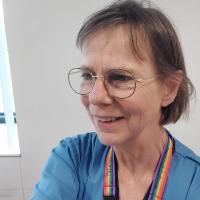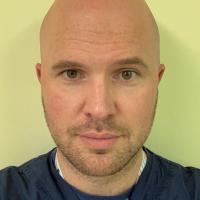Forming Rapid Cancer Diagnostic Services (RCDS) in Scotland
13:30 - 14:45
In NHS Scotland, around 60% of cancers are diagnosed through the urgent suspicion of cancer (USC) route - the remainder come through alternative routes such as routine or urgent referrals from primary care or A&E. Earlier detection is vital.
You will hear about the establishment of Rapid Cancer Diagnostic Services (RCDS) an innovative change in diagnosing cancer and the five RCDSs in NHS Scotland. RCDSs provide primary care with a new route to refer patients with non-specific symptoms, such as unexplained weight loss, pain or fatigue, suspicious of cancer. Prior, patients that do not meet the Scottish Referral Guidelines for Suspected Cancer, or who present with non-specific suspicious symptoms, would have a series of tests co-ordinated by primary care. Potentially resulting in delayed diagnosis, unnecessary examinations and poorer patient outcomes. Collaborative working across primary and secondary care is integral to the delivery of an effective RCDS.
In this session you will gain a thorough understanding of the RCDS pathway/offering for NHS Scotland, recognise the value that the new model brings to all users (primary and secondary care and patients) and discover how the learning from this initiative can be embedded across wider services.
Speakers
Dr Philip Hodkinson
Consultant Lung Physician, NHS A&A Joint National Clinical Lead for Cancer Improvement and Earlier Diagnosis, CfSD, NHS A&A; CfSD

Lucy Heycock
RCDS Clinical Nurse Specialist / Navigator, NHS Dumfries & Galloway

Dr Robin Kerr
Clinical Lead for Rapid Cancer Diagnostic Service (RCDS), NHS Borders
